What does “German rounding” mean?
The ASTM D1250-80 /API MPMS Chapter 11 – 1980 implementation guide specifies, that absolute density values must be rounded to the nearest 0.5 kg/m³ value.
Example:
An input value of 781.3 kg/m³ is internally rounded to 781.5 kg/m³ before it is utilized for the computation of the base density or the VCF and subsequently for the mass values; a value of 781.1 kg/m³ is rounded to 781.0 kg/m³.
This rounding specification leads to the peculiar effect, that a base density value of e.g. 780.3 kg/m³ at 15 °C is rounded to 780.5 kg/m³ (at 15 °C) and a value of 780.1 kg/m³ at 15 °C is rounded to 780.0 kg/m³ (at 15 °C):
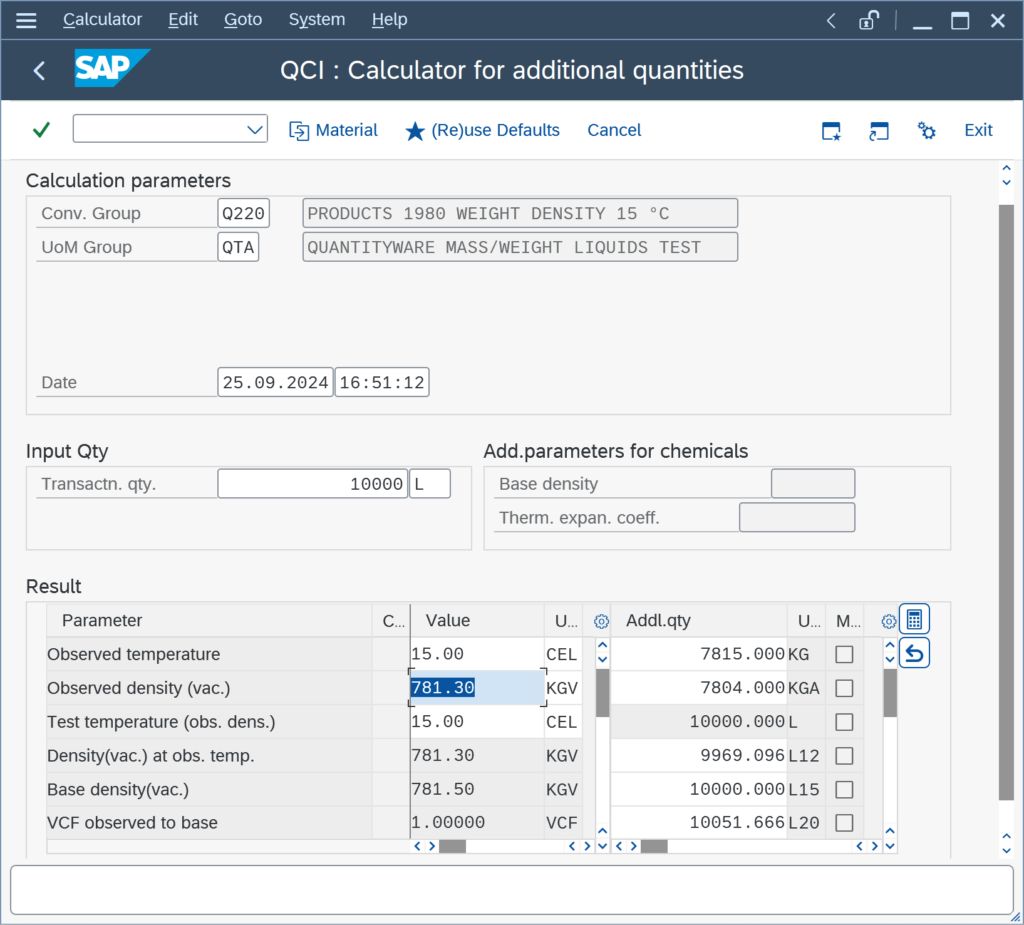
To avoid this effect, this rounding rule has been modified in various countries, such that rounding to the nearest 0.1 kg/m³ value is required.
This is e.g. defined in German industry standard DIN 51757, such that a value of 781.3 kg/m³ is rounded to 781.3 kg/m³, also at 15 °C or 20 °C base temperature:
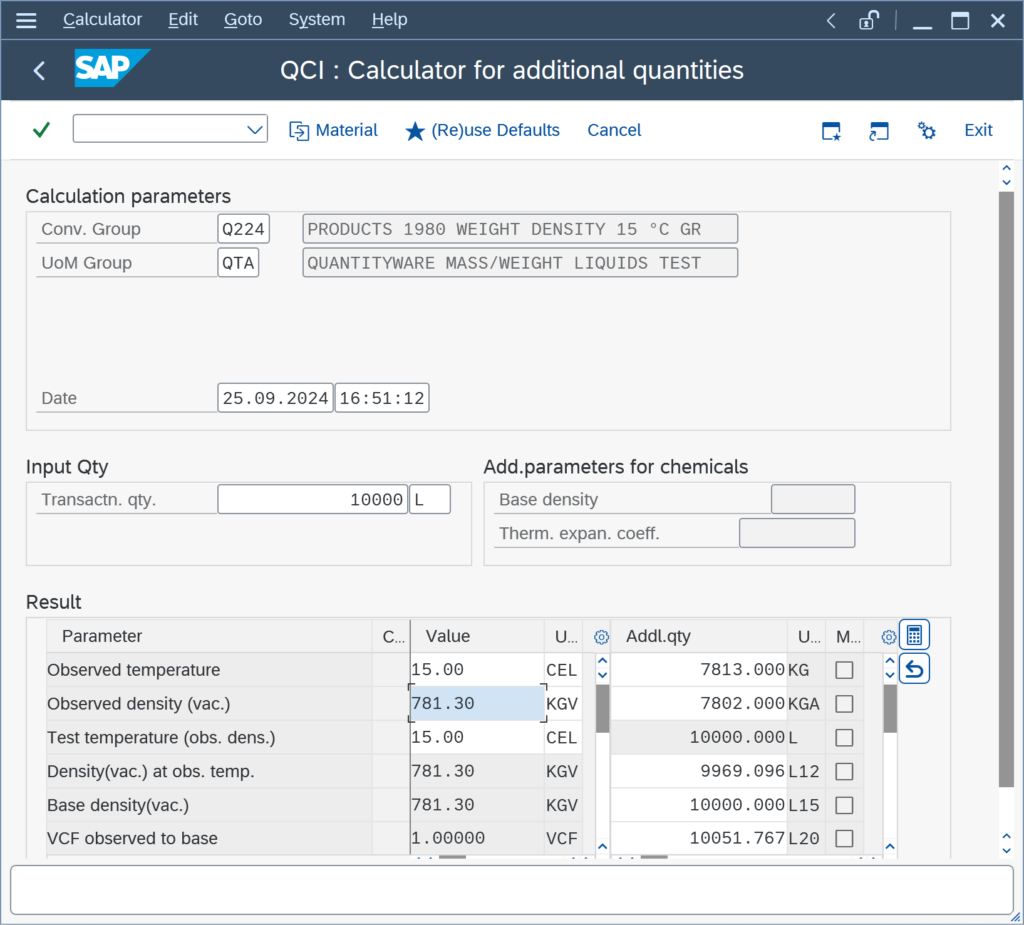
BCP Template:
For this reason, the QuantityWare BCP template contains template conversion groups for ASTM D1250-80 quantity conversions for both rounding rules – e.g. for ASTM D1250-80 “Tables 53A/54”:
SAP QCI :
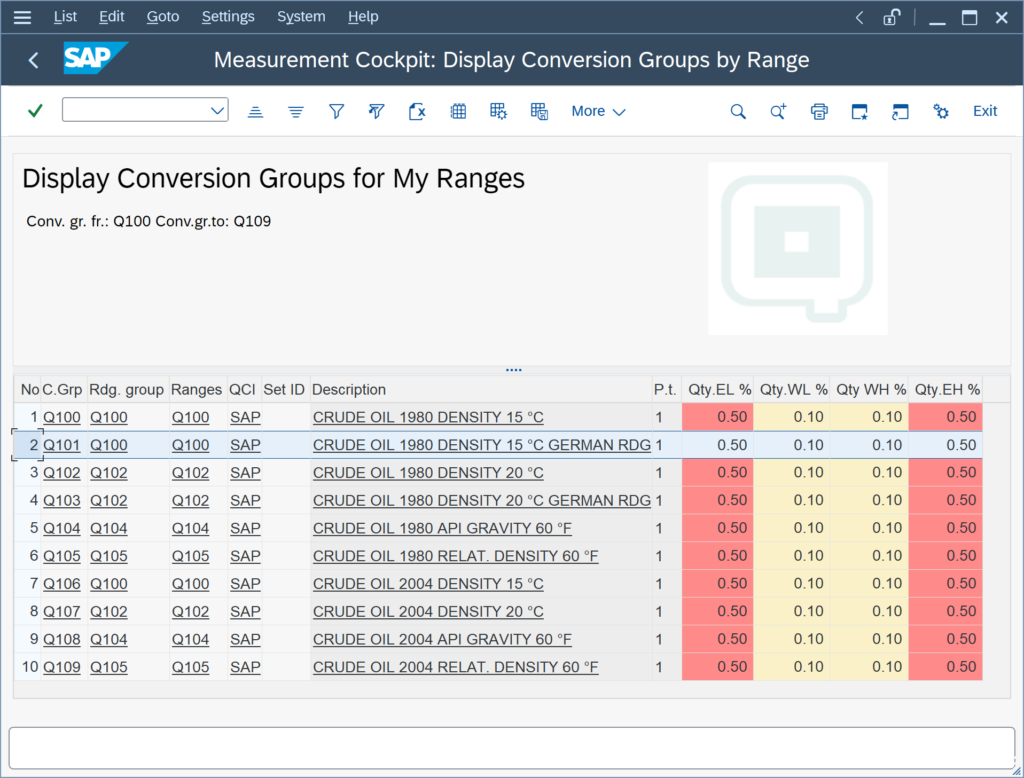
MQCI:
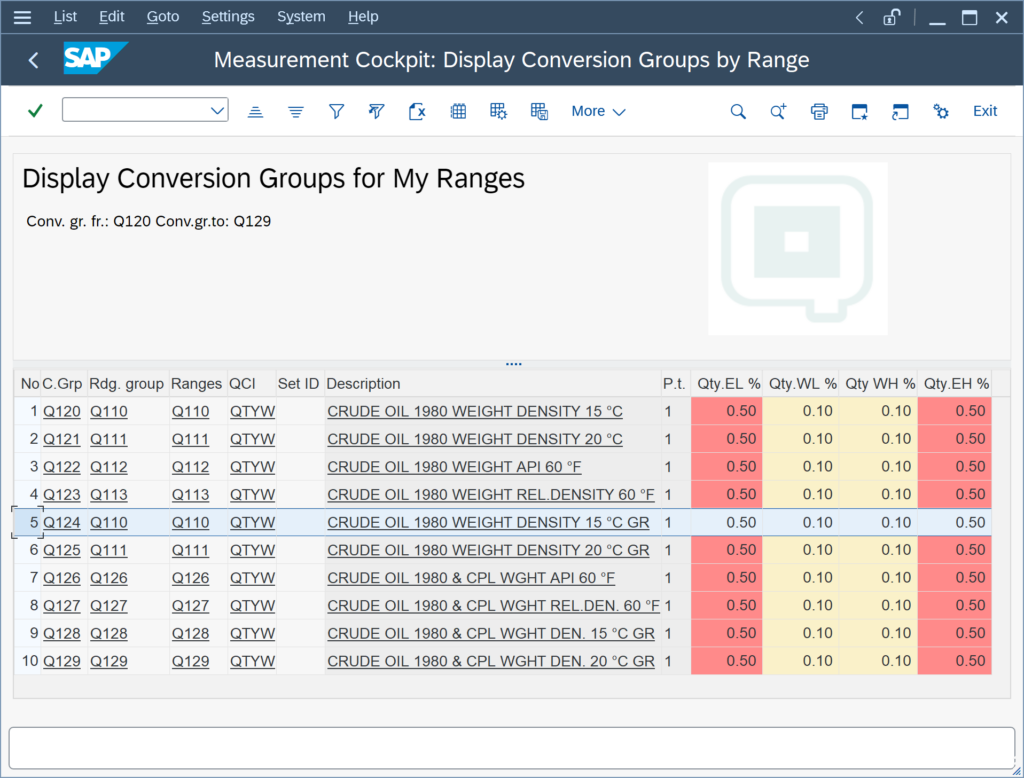
Important Note:
If you are executing a legacy SAP QCI change project from C to ABAP, the “German rounding” status of the legacy API C codes is required, which is checked by the question “Do your API C codes (ASTM D1250-80) round base densities to 0.1 kg/m³ ?”:
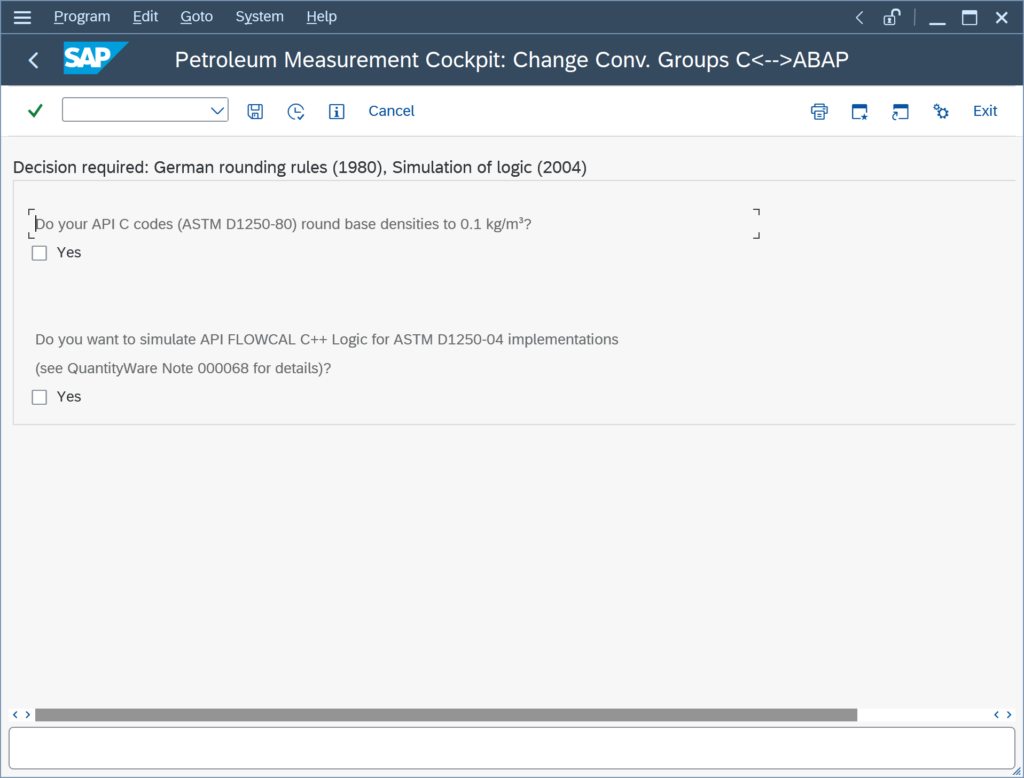
if this “German rounding” check is answered with “Yes”, you confirm that the legacy API C codes have most likely been modified for “German rounding” (and maybe for range extensions and other country specific requirements as well). The online documentation in the PMC then defines the specific template conversion groups that are relevant.
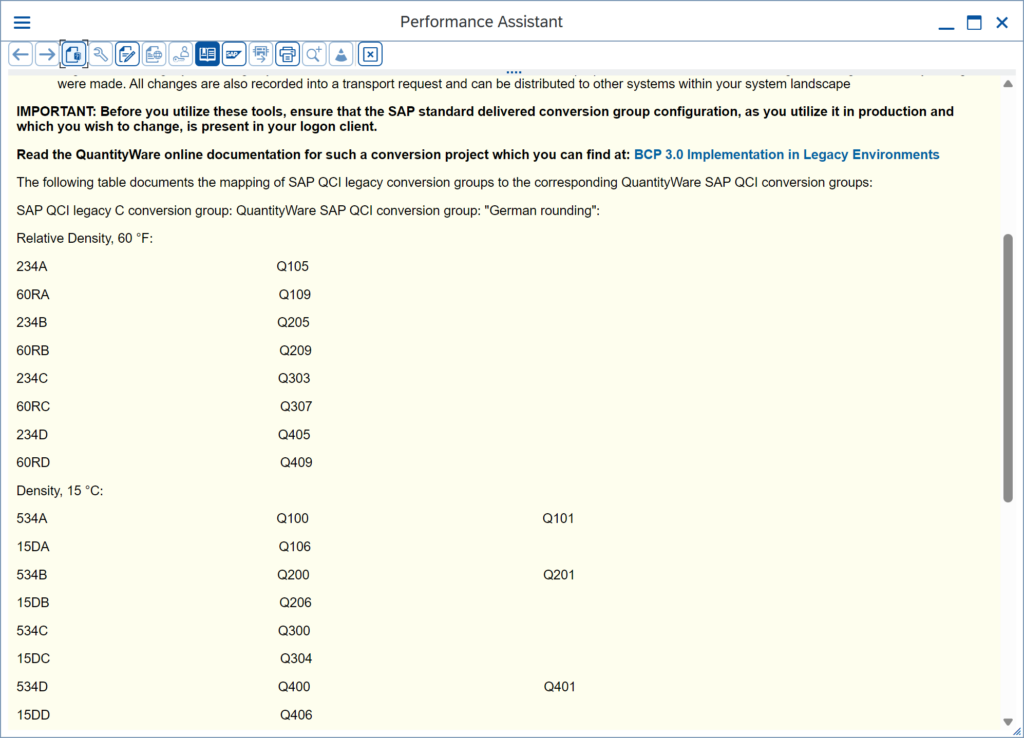
Categories: BCP Configuration FAQs | SAP QCI General Configuration FAQs
Back to FAQs



